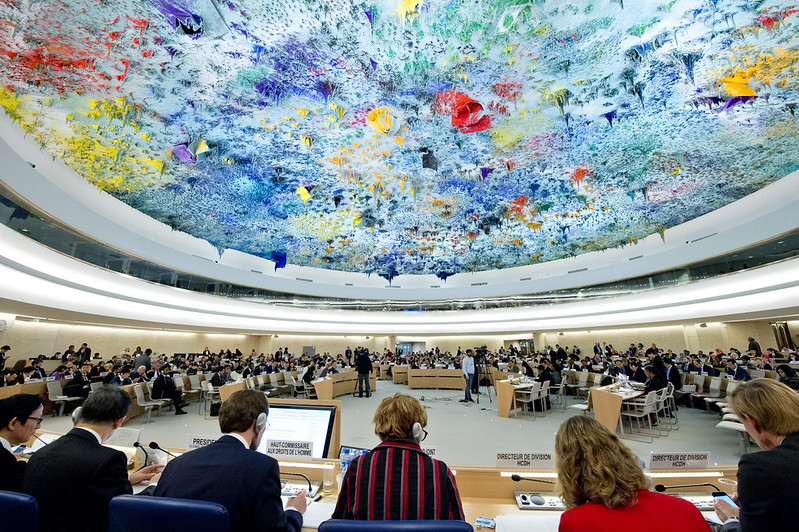4.3.5 International Human Rights and Islam

Whereas recognition of the inherent dignity and of the equal and inalienable rights of all members of the human family is the foundation of freedom, justice and peace in the world… (Universal Declaration of Human Rights, 1948).
The Universal Declaration of Human Rights (UDHR) was adopted in 1948, in response to the atrocities surrounding the Second World War. Moved forward in no small part by US First Lady Eleanor Roosevelt, the Declaration paved the way for subsequent binding international human rights resolutions, such as the International Covenant on Civil and Political Rights (which entered into force in 1976).
There has been much debate, however, about whether the UDHR and other international human rights documents reflect universal principles, or whether they are an expression of Western ideals. To what degree does the current international human rights regime harmonize with understandings of Islamic scripture? Can, and should, some discordancies be reconciled?
In this learning material you will first familiarize yourself with the UDHR before turning to an article by Yaqeen Institute contributor Nour Soubani. Soubani tracks the origins of contemporary human rights and considers other possible sources while acknowledging the tension between cultural relativism and the imposition of universalism.
Read: Universal Declaration of Human Rights // United Nations
Guiding Questions:
- Focus on Articles 2, 7, and 18. Do these articles align with your understanding of Islamic theology? Are there elements that do not align?
Read: Does Islam Need Saving? An Analysis of Human Rights // Yaqeen Institute
Guiding Questions:
- What role have colonialism and modern forms of imperialism through securitization played in Muslim perceptions of international human rights, according to the article?
- Recall learning material 1.4.3 on modernity and religious tradition. Recognizing the impact of colonialism and imperialism, how do you think Professor Tareen would argue we should approach indigenous efforts to protect human dignity and freedom in non-Western contexts? Are these efforts just uncritical adoptions of Western thought?
- Does the international human rights regime have religious origins? If so, how did it become secular?
- Who gets to define what it means to be human and our rights and duties to one another? Take the case of slavery, for example. Who decides whether slavery is allowable in a culturally relative system versus a universalist system like the UDHR? Can one community pressure another to outlaw slavery in a culturally relativist system?
- Refer to Article 30 of the UDHR. Is the former US First Lady Laura Bush’s call to support war in Afghanistan in order to “liberate” women and children supported by Article 30?
- Is culture and our understanding of what it means to be human rigid or unchanging? How does, for example, a community’s understanding of “justice for women” or “justice for other ethnic groups” change over time?
- As Soubani asks, “does there need to be a separate, Islamic framework of human rights?”
Excerpt quote: Soubani, “Does Islam Need Saving?” Yaqeen Institute, August 21, 2017.
Thumbnail: A general view of participants at the 31st regular session of the Human Rights Council. 10 March 2016. Photo Credit: UN Photo / Jean-Marc Ferré. CC BY-NC-ND 2.0.


